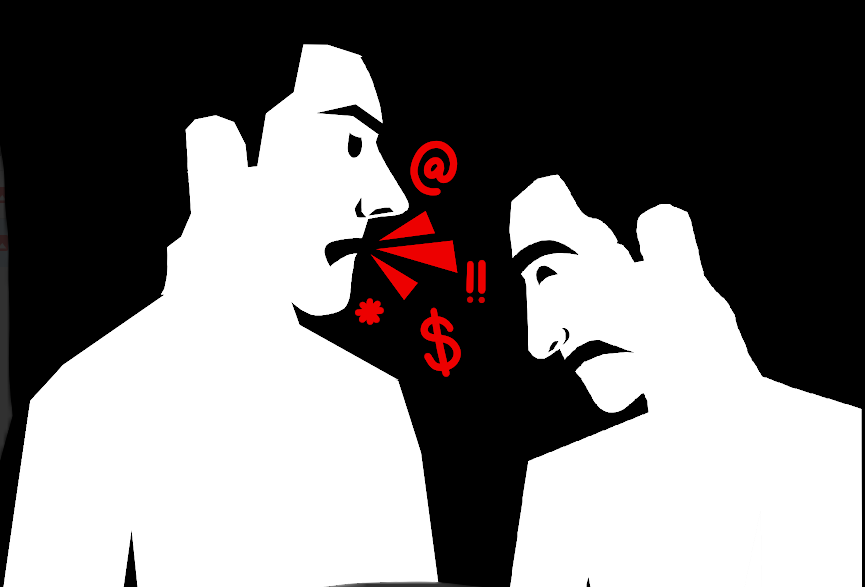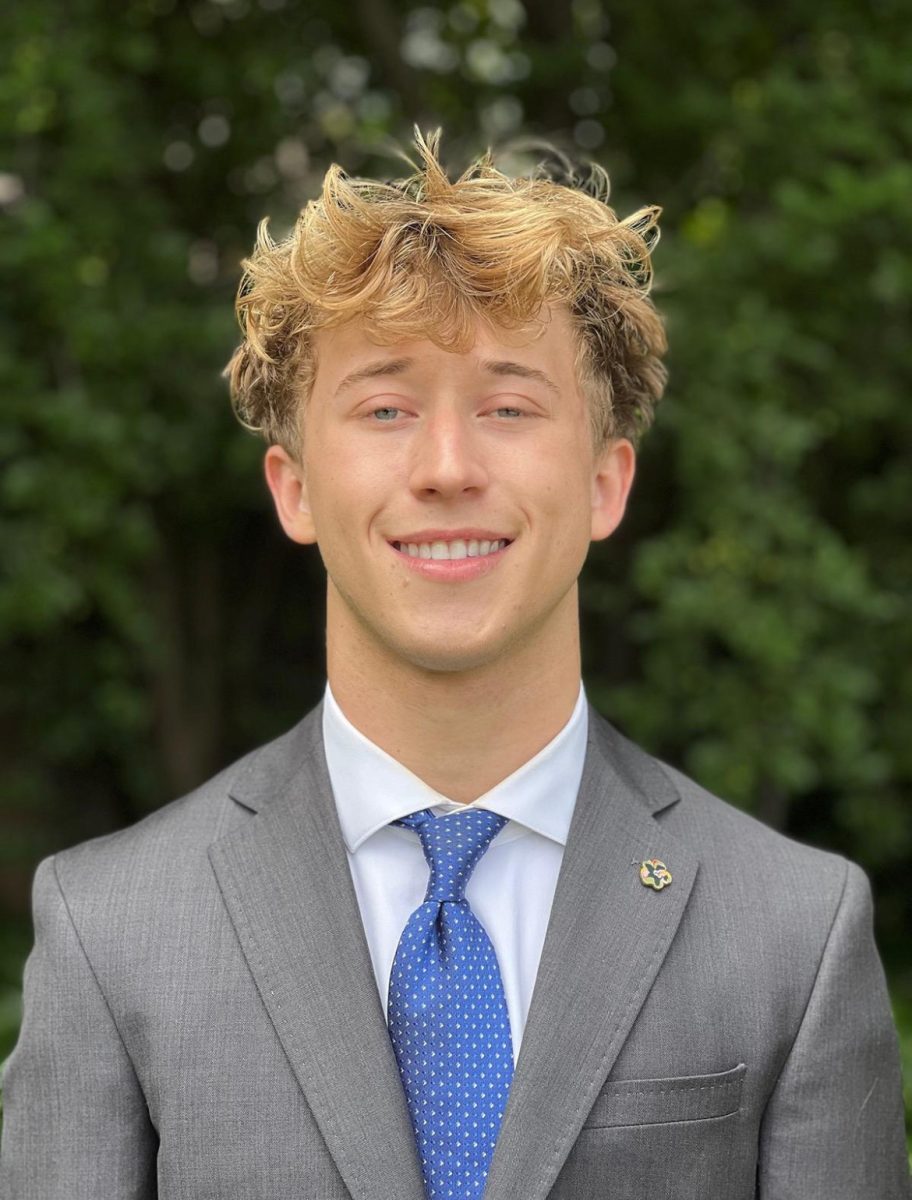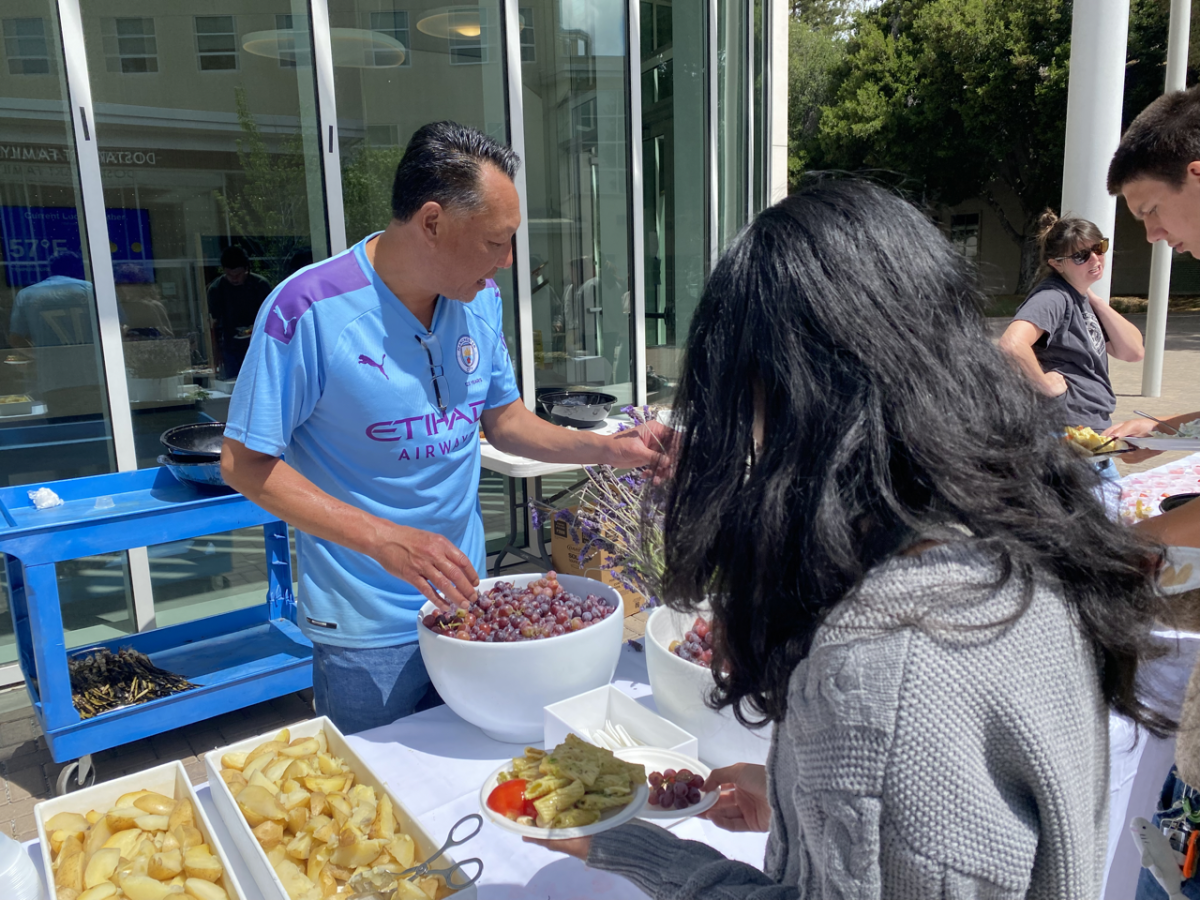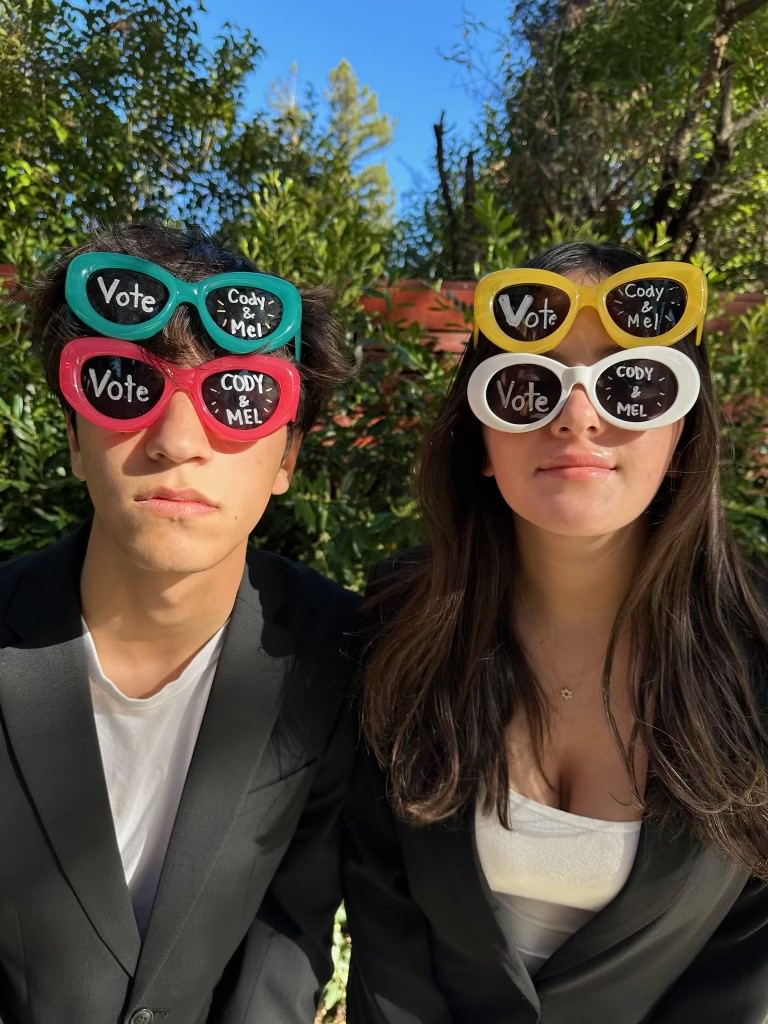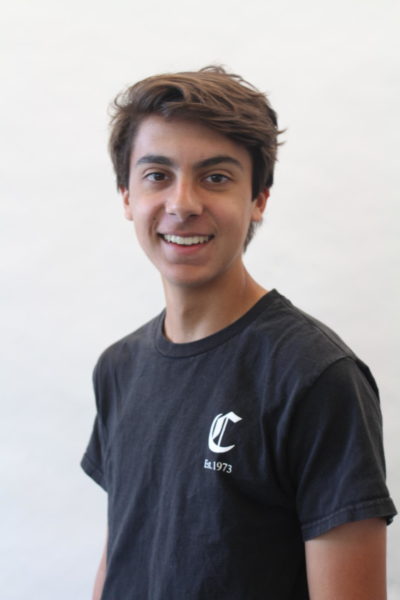After multiple students were expelled for racist language and conduct in early March, Menlo administrators called attention to bigoted behavior. “What triggered [the expulsions] was more than one event where students acted so inappropriately, not just verbally but also physically, that it was just so clearly out of bounds,” Upper School Director John Schafer told The Coat of Arms.
A freshman girl, who will be referred to as Sheryl, said that the expulsions have impacted her class’ dynamic. “We just lost three kids in our grade,” she said. “It’s already not a big grade so that has a bigger effect than it might on some other schools.”
Students have had mixed feelings about how the administration handled the reported uptick in bigotry. Some, like junior Ben Salama, say that the situation has improved since the class meetings and expulsions. “Just being out on the quad and interacting with friends, I feel like I’ve seen a definite downtick in slurs,”
Salama said.
On the other hand, senior and president of the Black Student Union Aaliyah Sanders said that, while she approves of the punishments given out by the administration, she is skeptical that their punitive approach will be effective in ending bigotry at school. “Just because you crack down on it and give harder punishments […] is not going to stop people from actually being racist, which I feel like is the bigger issue,” Sanders said. “It’s just gonna make them be less open about it.”
In addition, she expressed disappointment that the administration had yet to reach out to the BSU to discuss the recent incidents of racism targeting Black students and see how members are feeling. “I think we feel disrespected and unheard as a community,” Sanders said.
She also voiced a general frustration with the administration that has been building for months. For one, she said the administration is enforcing a “double standard” in regard to disciplining students for using the N-word. She pointed to an example in a previous year where a Black student was allegedly punished for using the slur and a recent case where a non-Black student allegedly uttered the slur without receiving as severe a punishment. Sanders also noted that the cancellation of the MLK assembly and the shortened Black History Month assembly compounded these frustrations.
As a senior, Sanders added that the administration’s approach defers too much responsibility to the graduating grade. “[Head of School Than] Healy was like, ‘we need your help to do this and do that,’ but it’s, like, not really up to us [seniors] anymore — like, the future of Menlo is not us,” she said. “I’m just waiting to see how [the administration is] going to fix it.”
Salama, who is also a member of the varsity baseball team, said that he most often encounters slurs — including the N-word — at Menlo during Menlo sports practice. “Every single day at practice, […] people will say slurs that in a classroom are totally unacceptable — [that] even on the quad [are] totally unacceptable,” Salama said. “I feel like people just feel like once you leave the school and once you go to the fields, all restrictions and what it means to be a Menlo student [are] no longer in
the forefront.”
Similarly, an anonymous junior member of the boys soccer team, who will be referred to as Elliot, said that a lack of accountability around bigoted language leads to more egregious behavior. “At practice, we’re all fooling around, we’re all having fun but then some people will just start saying stuff that kind of pushes the boundaries, but no one really points that out, and I think people keep on pushing the boundaries until they think it’s not even crossing a boundary anymore,” Elliot said.
Having also played on Menlo’s football team, Salama said that the culture that permits this kind of behavior is dependent on the leadership of the team, including that of coaches and upperclassmen. “I think that on the baseball team, we have historically had poor leadership from upperclassmen and teaching underclassmen how to act and what it means to be a Menlo student and a Menlo student athlete,” he said.
Asked to comment on the baseball team culture, baseball head coach David Trujillo lauded the “brotherhood” of the team and said he would not tolerate discriminatory language. “There’s no racist, bigoted comments that go around here that I hear,” he said. “It would definitely not fly around here — there would be serious discipline action.”
Athletics Director Earl Koberlein said the same disciplinary action would happen anywhere in the athletics department, adding that he has been working to actively combat such language. “To equip coaches with tools in how to handle an incident where they may hear such language, we recently had a guest speaker who is an expert in EDIB work address the coaches at our coaches meeting,” Koberlein wrote in an email to The Coat of Arms.
Another anonymous junior boy, who will be referred to as Tucker, said he hasn’t heard the use of the N-word firsthand at Menlo, but has heard other slurs, such as the F-slur (which targets gay people) in the upper school, leading him to doubt that there has actually been an uptick in such language on campus. “I think there have been a few recent things and the severity of them has been worse,” he said. “[So while] I believe whatever data [the administration has], I’d say my personal experience is that bigoted language has been kind of a problem in general since I’ve started high school,” Tucker said.
English teacher Whitney Newton said that the confinement of such behavior to outside the classroom, particularly on the quad and at sports practice, makes it hard for teachers to spot it. “It’s invisible and inaudible in some ways to teachers, and I would say that’s probably doubly true for teachers who the students know would intervene,” she said.
Upper School Director John Schafer added that the fact that this bigotry happens at Menlo is “shocking” to him. “It’s so contrary to the story I tell myself about the school,” Schafer said.
Schafer also mentioned that there has been an increase in discriminatory language in Menlo’s middle school. In an interview with The Coat of Arms, Middle School Assistant Director Mima Takemoto said that she began observing this uptick following the return to in-person learning after COVID-19. “I remember being alarmed at that time; we hadn’t had that many incidents previous to [COVID-19],” Takemoto said. “And then this year, it’s another step up.”
Students and faculty interviewed for this article most commonly cited social media and the pandemic’s disruption to in-person social interactions as factors behind the uptick. Schafer and Takemoto also pointed to America’s increasingly polarized and vulgar political discourse as potential stimulants to students’ adoption of bigoted language. However, Healy noted that the most driving factors behind this uptick remain elusive. “I just know that this is what we’re seeing, [and] it just can’t continue,” he said.
Newton noted that the issue of bigoted language is gendered, showing up more in boys than in girls. “I feel like we’re afraid to bring [that fact] up,” she said. “And I don’t think we should be afraid, right, because how are we gonna fix it if we don’t acknowledge that really basic fact?”
Since Takemoto became assistant director in 2012, there haven’t been any expulsions in the middle school. Takemoto describes the worst of what she has seen as taunting, either face to face or online. When asked about the N-word in particular, she said, “typically, it’s not as far as Black students being called the N-word, [but] it may be Black students being asked for a pass [to use the N-word].”
However, Takemoto noted that oftentimes the middle schoolers don’t understand the impact of their behavior. “Kids will come in and they’ll have said something and they don’t know why it was wrong,” Takemoto said. “They’re almost just parroting, just mimicking, whatever they’ve heard, and that’s why it’s important for us, as an educational institution, to educate them so that they understand the ramifications of their words of their behavior and so they don’t repeat it.”
To help teach future freshmen about the harm of using bigoted language, Newton and the English 1 team are considering bringing “Accountable” by Dashka Slater into the curriculum. The book tells the true story of a group of boys that created a racist social media account and shows the consequences the account had on the community. “I think we’re trying to figure out how to have some of those conversations, because I don’t think you can just leave it up to the students and be like, ‘They’re gonna figure this out,’” Newton said.
As part of her job, Director of Student Belonging Carmen Borbón handles the education of Menlo students who use discriminatory language. This year, her first in the role, she has worked with both middle and upper school students, whose differing needs necessitate different educational methods.
Borbón explained that, with upper school students, she presents education materials and works with the student to drive home that their conduct is wrong in order to prevent more of such behavior. “For [middle schoolers] it’s [often] just a matter of explaining to them like why it was wrong and giving them the context, and then they get it,” Borbón said. “In high school it’s different because I honestly do believe they know better.”


